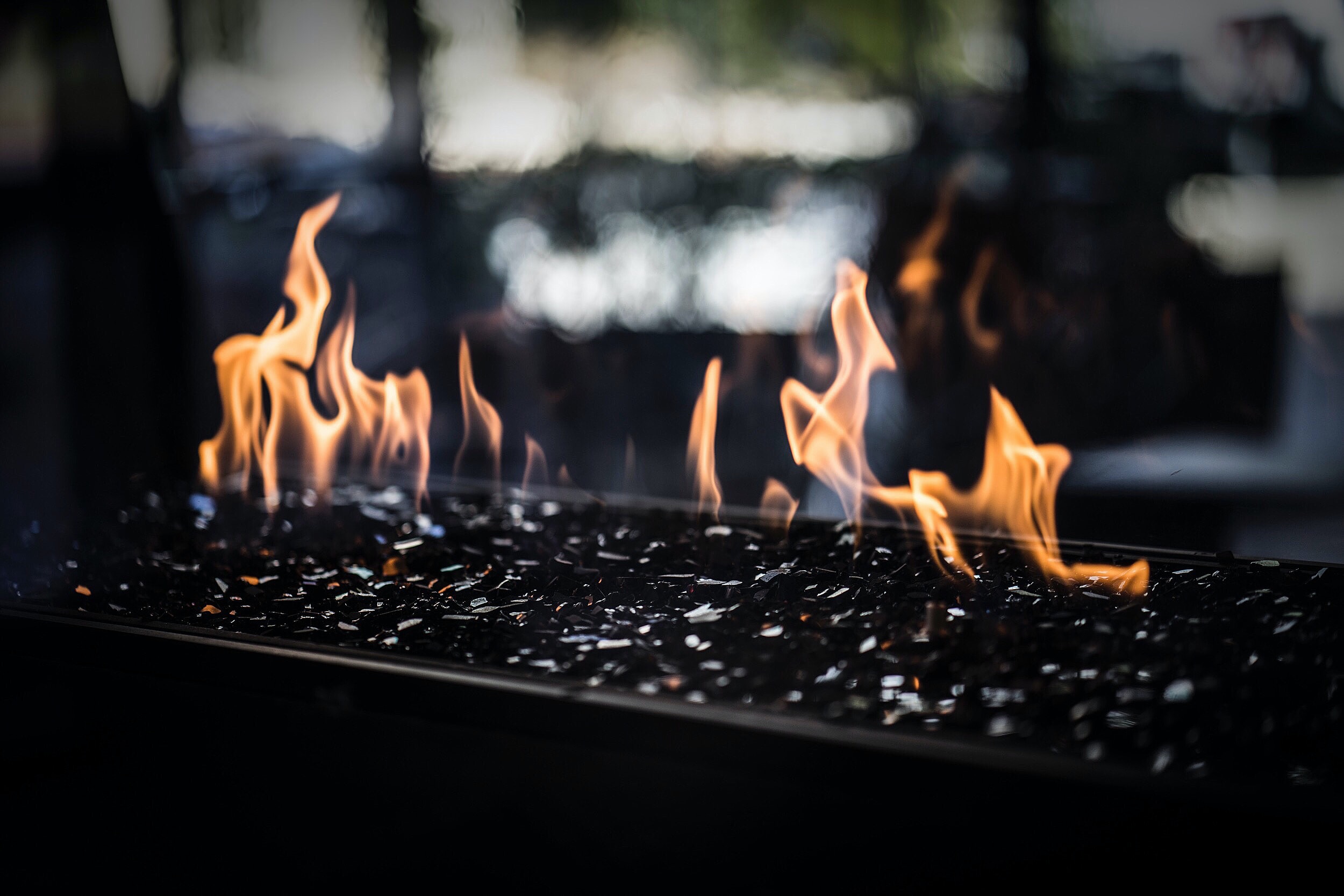Will My Gas Fireplace Work Without Power? Find Out Now!
If you’re wondering whether your gas fireplace can still keep you warm during a power outage, you’ve come to the right place. In this article, we’ll explore if gas fireplaces can function without electricity and provide you with essential information on their operation during power outages.
Key Takeaways:
- Gas fireplaces can generally operate without electricity during a power outage.
- Understanding the functioning of gas fireplaces will ensure their effective use during times when the power is out.
- Proper maintenance and care are crucial to ensure optimal performance, including during power outages.
- Backup power options are available to ensure your gas fireplace can continue to function during a power outage.
- Safety considerations should be kept in mind when using a gas fireplace during a power outage.
Understanding Gas Fireplaces and Power Supply
Gas fireplaces are a popular heating option for many homeowners due to their convenience and efficiency. But how do they function, and can they operate during a power outage?
Gas fireplaces rely on both gas and electricity to function. While gas serves as the main source of heat, electricity powers the ignition system, fans, and other components that control the fireplace’s operation.
During a power outage, gas fireplaces can still function, but their performance may be affected. The lack of power means that the fireplace’s fan won’t operate, resulting in less heat being circulated throughout the room. However, the gas should continue to flow, allowing the fireplace’s burner to produce heat.
If you have a standing pilot gas fireplace, it will continue to operate even during a power outage. The standing pilot system uses a small flame that stays lit all the time, making it independent of electrical power.
The Components of Gas Fireplaces
Gas fireplaces consist of several components that work together to produce heat. These include:
Component |
Description |
|---|---|
Gas Burner |
The burner is where the gas is ignited, producing flames that provide heat. |
Thermocouple |
The thermocouple is a safety device that senses the presence of a flame and prevents gas from flowing if there is no flame. |
Ignition System |
The ignition system ignites the gas, creating flames that provide heat. There are two types of ignition systems: standing pilot and electronic ignition. |
Heat Exchanger |
The heat exchanger transfers the heat produced by the burner to the air circulating throughout the room. |
Fan |
The fan circulates the heated air throughout the room, improving the fireplace’s efficiency. |
Without electricity, the ignition system and fan cannot operate, but the gas burner and heat exchanger should still function. This means that the fireplace will provide some heat, but it may not be as efficient as it would be with electricity.
Now that we’ve covered the components of gas fireplaces let’s explore their ignition systems in more detail.
Gas Fireplaces and Ignition Systems
Gas fireplaces require an ignition system to start the fire and produce heat. There are two main types of ignition systems used in gas fireplaces:
- Standing Pilot Ignition System
- Electronic Ignition System
The standing pilot ignition system uses a small flame that remains lit continuously, serving as a ready source of fire. When the gas fireplace is turned on, the flame ignites the gas and starts the fire. This system is always on and doesn’t require electricity to operate, making it an ideal option during power outages.
On the other hand, electronic ignition systems rely on electricity to ignite the gas. There are two types of electronic ignition systems:
- Intermittent Pilot Ignition System
- Direct Ignition System
The Intermittent Pilot Ignition system uses an electric spark to ignite the gas, while the Direct Ignition System has a built-in igniter that directly ignites the gas. Both systems require electricity to operate and cannot function during a power outage.
It’s important to note that while standing pilot ignition systems don’t require electricity to operate, they are less energy efficient compared to electronic ignition systems. However, during a power outage, a standing pilot ignition system may be the best option to keep your gas fireplace running.
Tip: If you have an electronic ignition system and experience a power outage, try using a battery-operated generator to power your fireplace.
Gas Fireplace Ignition System Comparison Table
Ignition System Type |
Requires Electricity? |
Energy Efficiency |
Functionality during Power Outages |
|---|---|---|---|
Standing Pilot |
No |
Less efficient |
Can function without power |
Intermittent Pilot |
Yes |
More efficient |
Cannot function without power |
Direct Ignition |
Yes |
Most efficient |
Cannot function without power |
Ventilation and Gas Fireplace Operation
When a power outage occurs, it’s important to ensure that your gas fireplace is still properly ventilated to prevent any potential safety hazards. Without electricity, the ventilation system of your gas fireplace may not work properly, leading to the accumulation of carbon monoxide and other harmful gases.
The simplest way to ensure proper ventilation is to crack open a window near the fireplace, allowing fresh air to circulate. This will allow for proper combustion and ventilation, ensuring safe operation of your gas fireplace. Additionally, if you have a chimney, make sure it is not blocked and is functioning correctly, as it is an essential part of the ventilation system for your gas fireplace.
Example of Ventilation During Power Outage
Electricity |
Ventilation |
Gas Fireplace Functioning |
|---|---|---|
On |
Proper ventilation through the system |
Gas fireplace works as expected |
Off |
Crack open window for fresh air circulation and ensure chimney is functioning correctly |
Gas fireplace can still operate, ensuring safe and efficient heating |
Keeping your gas fireplace properly ventilated during a power outage is crucial for your safety and the safety of others in your home. By following these tips, you can continue to use your gas fireplace as a reliable heat source, even without electricity.
Backup Power Options for Gas Fireplaces
When a power outage occurs, one of the biggest concerns for homeowners is how to keep their homes warm. Fortunately, gas fireplaces can provide heat even when the electricity is out. However, to ensure that your gas fireplace functions during a power outage, it’s essential to consider backup power options. Here are a few backup power solutions you can use to keep your gas fireplace running:
1. Generator
A generator is a reliable source of backup power during a power outage. You can use a portable or standby generator to keep your gas fireplace running. Portable generators are less expensive than standby generators, but they require manual setup and monitoring. Standby generators, on the other hand, are permanently installed and automatically turn on when there’s a power outage. They are more expensive but offer greater convenience and reliability.
2. Battery Backup System
A battery backup system is another backup power option for gas fireplaces. This system uses a battery that can be charged when the power is on, and it automatically kicks in during a power outage to power the gas fireplace. Battery backup systems are easy to install and operate, and they are generally less expensive than generators. However, they may not provide power for as long as a generator, so it’s important to consider your specific needs before choosing a battery backup system.
3. Solar Power System
If you want a more eco-friendly backup power option, a solar power system may be the way to go. Solar power systems use solar panels to convert sunlight into electricity, which can be used to power your gas fireplace during a power outage. While solar power systems may be more expensive than other backup power options, they offer a long-term cost savings by reducing your reliance on traditional power sources.
Regardless of which backup power option you choose, it’s important to ensure that your gas fireplace is properly installed and maintained to ensure its safe and efficient operation during power outages. With the right backup power option and proper maintenance, you can enjoy the warmth and comfort of your gas fireplace even when the power goes out.
Safety Considerations during Power Outages
Using a gas fireplace during a power outage can provide much-needed heat and comfort, but safety should always be a top priority. Here are some essential safety tips to keep in mind:
- Make sure your gas fireplace is properly installed and vented to prevent carbon monoxide buildup.
- Never leave your gas fireplace unattended, especially during a power outage.
- Use a battery-powered carbon monoxide detector to monitor air quality in the room.
- Do not use outdoor gas appliances, such as barbeques or camping stoves, indoors. These appliances can produce carbon monoxide and pose a serious health risk.
- Keep all flammable materials, such as curtains and furniture, at a safe distance from the gas fireplace.
It’s important to note that gas fireplaces may not operate at full capacity without electricity. The performance of the fireplace can be affected by the type of ignition system and the need for ventilation. Regular maintenance and cleaning of the gas fireplace can help ensure optimal performance in the event of a power outage.
Properly maintaining a gas fireplace is crucial to ensure its safe and efficient operation during power outages. Always follow the manufacturer’s instructions and consult a professional if you have any questions or concerns.
Maintenance and Care for Gas Fireplaces
To ensure that your gas fireplace functions during a power outage, regular maintenance and proper care are crucial. Here are some tips to keep your gas fireplace in top condition:
- Clean the Glass: Wipe the glass doors of your gas fireplace with a clean, damp cloth. Do this when the glass is cool to the touch. Avoid using harsh chemicals or abrasive materials that can damage the glass surface.
- Clean the Interior: Remove any debris, dirt, or dust from the interior of your gas fireplace using a handheld vacuum or a soft brush. Be sure to shut off the gas supply and let the fireplace cool before cleaning the interior.
- Check the Burner: Check the burner of your gas fireplace for any signs of wear, corrosion, or damage. If you notice any issues, contact a licensed technician for repairs or maintenance.
- Inspect the Ventilation: Check the ventilation system of your gas fireplace to ensure proper airflow. If the vent is blocked or obstructed, it can cause carbon monoxide buildup, which can be dangerous.
- Check Gas Connections: Inspect the gas connections of your gas fireplace to ensure that they are tight and secure. If you smell gas, shut off the gas supply immediately and contact a licensed technician for repairs.
Regular maintenance and cleaning of your gas fireplace not only ensures optimal performance during power outages but also extends its overall lifespan.
Energy Efficiency of Gas Fireplaces
Gas fireplaces are a popular choice for homeowners due to their energy efficiency. In comparison to wood-burning fireplaces, gas fireplaces are more eco-friendly and provide a reliable source of heat. Even during power outages, gas fireplaces can still function, making them a practical heat source.
Gas fireplaces function by burning natural gas or propane. The gas is ignited, producing heat which is distributed throughout the room through a heat exchanger or blower. In comparison to wood-burning fireplaces, gas fireplaces produce less pollution and require less maintenance.
During power outages, gas fireplaces can still function as they do not require electricity to produce heat. However, some gas fireplaces may rely on electrical power for certain components, such as the blower or ignition system. In such cases, backup power options can be used to ensure consistent operation during power outages.
Tip: Ensure that your gas fireplace has a standing pilot system that can keep the flame burning during a power outage. This will ensure that your gas fireplace continues to produce heat even if the electricity is out.
While gas fireplaces are generally efficient, their performance can be affected by factors such as ventilation, maintenance, and insulation. Proper ventilation is crucial to ensure safe and efficient operation, while regular maintenance can help to ensure optimal performance. Insulation of the room or home can also impact the efficiency of the gas fireplace, as it can help to retain heat and reduce heat loss.
Gas Fireplace Energy Efficiency Comparison
Gas fireplaces come in a variety of sizes and styles. The size and style of a gas fireplace can impact its energy efficiency. Below is a comparison of the energy efficiency of different types of gas fireplaces:
Type of Gas Fireplace |
Energy Efficiency |
|---|---|
Ventless gas fireplace |
99% efficient |
Direct-vent gas fireplace |
70-85% efficient |
B-vent gas fireplace |
60-80% efficient |
Ventless gas fireplaces are the most efficient, with a 99% efficiency rating. They do not require a chimney or vent and are an excellent option for homeowners who want to reduce energy costs. Direct-vent and B-vent gas fireplaces are also efficient, with a 70-85% efficiency rating and 60-80% efficiency rating, respectively. These fireplaces require a chimney or vent to operate.
Overall, gas fireplaces are an energy-efficient and reliable source of heat, even during power outages. By understanding their functioning, maintenance requirements, and safety considerations, homeowners can ensure that their gas fireplace continues to operate effectively.
Benefits and Limitations of Gas Fireplaces during Power Outages
If you are looking for an emergency heat source during a power outage, a gas fireplace can be a great option. Below are some benefits and limitations to keep in mind when using a gas fireplace without electricity.
Benefits:
- Reliability: Unlike electric fireplaces, gas fireplaces can operate without electricity, providing heat when you need it most.
- Cost: Gas fireplaces are generally less expensive to operate than electric fireplaces, making them an affordable way to heat your home during a power outage.
- Efficiency: Gas fireplaces are known for their energy efficiency, meaning they can provide warmth while using less fuel than other heating sources.
- Comfort: Gas fireplaces can provide a cozy and inviting atmosphere, making them a great option for staying warm and comfortable during a power outage.
Limitations:
While gas fireplaces can be a reliable source of heat during power outages, there are some limitations to keep in mind.
- Dependence on Gas Supply: If your gas supply is cut off during a power outage, your gas fireplace will not be able to operate.
- Maintenance: Gas fireplaces require regular maintenance to ensure they operate safely and efficiently. If you have not properly maintained your gas fireplace, it may not be able to function during a power outage.
- Carbon Monoxide: Gas fireplaces, like any fuel-burning appliance, produce carbon monoxide. Without proper ventilation, carbon monoxide can build up in your home and be deadly. It is crucial to ensure your gas fireplace is properly vented and maintain working carbon monoxide detectors in your home.
Conclusion
In conclusion, gas fireplaces are an excellent heat source during power outages as they can typically operate without electricity. It’s important to understand how gas fireplaces work, the different ignition systems available, and the ventilation requirements needed for safe operation. Additionally, considering backup power options and following safety guidelines is essential when using a gas fireplace without electricity.
Proper maintenance and care, including regular cleaning and inspection of your gas fireplace, can also ensure optimal performance during power outages. Gas fireplaces are known for their energy efficiency and can continue to offer warmth without electrical power.
While gas fireplaces provide several benefits during power outages, they do have limitations, such as the need for proper ventilation and the availability of gas supply. Overall, gas fireplaces are a reliable and effective heat source during power outages, but it’s important to be aware of their benefits and limitations.
So, if a power outage occurs, don’t worry about being left in the cold. Just remember to follow safety guidelines and care for your gas fireplace properly. With the right preparation and understanding, you can rely on your gas fireplace to provide warmth when electricity is out.
FAQ
Will my gas fireplace work without power?
Yes, gas fireplaces can generally operate without electricity. They rely on gas as a fuel source and can continue to produce heat even during a power outage.
How do gas fireplaces function without power?
Gas fireplaces use a pilot light or electronic ignition system to ignite the gas and produce a flame. This ignition system does not require electricity to operate, allowing the fireplace to function without power.
What happens to the ventilation of a gas fireplace during a power outage?
Proper ventilation is essential for the safe operation of gas fireplaces. Even during a power outage, the natural draft ventilation system of a gas fireplace will continue to function, ensuring the release of combustion byproducts.
Can I use my gas fireplace during a power outage?
Yes, you can use your gas fireplace during a power outage. However, it’s important to follow safety precautions and ensure proper ventilation. Additionally, you may need a backup power source to operate the blower fan, if applicable.
What are the backup power options for gas fireplaces?
Backup power options for gas fireplaces include battery-powered igniters and generators. These can ensure the continued operation of the fireplace during a power outage.
Are there any safety considerations when using a gas fireplace without power?
When operating a gas fireplace without power, it’s important to keep flammable objects away and use caution when handling the fireplace. Always follow manufacturer instructions and ensure proper ventilation to avoid carbon monoxide buildup.
How do I maintain and care for my gas fireplace, especially during power outages?
Regular maintenance is key to keeping your gas fireplace in optimal condition. During power outages, ensure the pilot light or ignition system is functioning properly, and clean any debris or soot buildup. Consult the manufacturer’s guidelines for specific maintenance recommendations.
Are gas fireplaces energy efficient even without electricity?
Yes, gas fireplaces are known for their energy efficiency. They can provide warmth and ambiance without relying on electrical power, making them a cost-effective heating option during power outages.
What are the benefits and limitations of using a gas fireplace during a power outage?
The benefits of using a gas fireplace during a power outage include continued heat source, energy efficiency, and independence from electrical power. However, gas fireplaces may have limitations such as the need for proper ventilation and potential reliance on backup power for features like blower fans.






